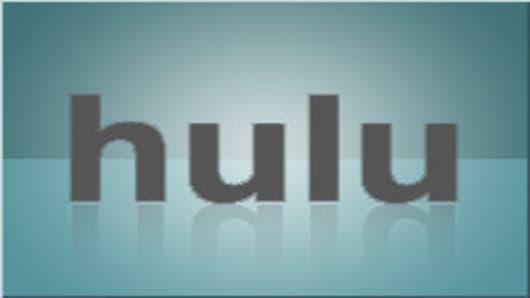Forgive me for tooting the NBC horn for a moment, but it looks as though the company's online digital downloading service might be an unabashed success. At least according to the LA Times which has an extensive article today detailing the success of this thing.
But I want to look at Huluagainst the backdrop of other services like Google's YouTube.com and Viacom'sJoost, and make the argument that the more savvy Hollywood gets, the more today's red hot video download services are in jeopardy. That's not to say that NBC and Fox, partnering on Hulu, will be the only game in town, and that's just the point. There may be dozens of "games in town" in the same way we have dozens of channels from which to choose on our satellite and cable boxes. The game's changing, and the landscape could be littered with entertainment and tech companies that don't adapt. And quickly.
Consider: Hulu now offers 700 different titles, including most of NBC's major line-up stars, Comedy Central's "The Daily Show with Jon Stewart," "The Colbert Report," "24," "30 Rock" and the list goes on and on. Neilsen Online says Hulu is the Number 10 streaming video site with 63 million total streams in April. A far cry from the 4 billion streams on Google's clip-sharing site during the same time frame, but there's no litigation overhang on Hulu the way there is on YouTube. And that's a big deal. And why this new world order of online video streaming holds so much potential.
Remember Webvan? The company tried to re-invent the grocery shopping industry by building distribution from the ground up, along with an online component. The company burned hundreds of millions of dollars in venture capital as one of Web 1.0's greatest flame-outs. I covered that rise and fall, and it seems to me it could have been a big hit had it partnered with a major grocery chain and offered an online component to an existing group of established distributors--the neighborhood market. Hulu and Joost are going about it another way. They're the supermarkets, already with groceries to sell, and simply coming up with a better way to get their product to customers. No litigation to worry about. Nothing to build out but a compelling website and bullet-proof digital distribution.
Youtube partners with some, but it's so big and so hard to police. If you believe Viacom, piracy is rampant, and therefore until there's some resolution on whether youtube's model breaks the law, there's always going to be that overhang. And Google knows it. And it's a problem. That's not to say Google won't partner with entertainment companies looking to take advantage of all those eyeballs; but why bother when you can create your own digital distribution system, own it, build it to your own specs, and reach your viewers that way? iTunes is the anomaly. A third party tech company (Apple) reaching instant critical mass and delivering enormous success.
Video is taking off differently. Learning from the mistakes the recording labels made when their industry went digital, it seems the video side of Hollywood is determined not to make the same mistakes--and try to own as much as their content, from traditional to digital, as it can.
Enter Hulu, which like Apple's iTunes, gives viewers an inexpensive, legal alternative to getting their entertainment digitally. And just as video-on-demand is becoming the web's killer app, it's just now taking off in a big way wirelessly. Why Apple's timing for its newest 3G iPhone, is so important, and so good.
Viacom's Joost is another example in this trend, but unlike Joost, users don't need a special player for Hulu. And unlike Tivo, when you download an episode on Hulu, you can't fast-forward through commercials. But some will say that's a small price to pay as the internet becomes the ultimate digital video recording device.
And with devices like AppleTV and others that wirelessly stream content from your desktop to your television, Hulu's outlook only seems brighter. This is why third party tech companies that aren't partnering with content providers are at such risk.
Hulu's had a great start. It stands to become one of the web's top "channels." And it may come at the expense of the companies we think of online video stars today. And if you're a Hollywood exec, that's probably a good thing.
GE is the parent company of NBC and CNBC.
Questions? Comments? TechCheck@cnbc.com


